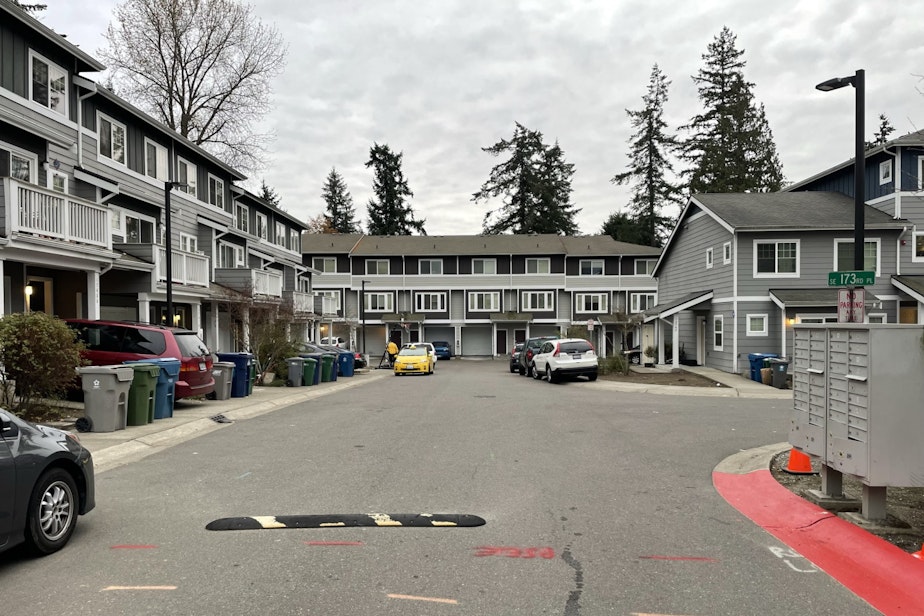Reporter's Notebook: How The Ripple Effect series was born

The Ripple Effect series focused on affordable housing solutions in the greater Seattle area.
I’ve been reporting on housing for KUOW for over 10 years, first as a freelancer, and then as a staff reporter. The housing shortage, and the way it shapes the city’s demographics, have become a huge story, but one that can feel really abstract.
One way I’ve found to tackle that is to take things neighborhood-by-neighborhood, to really hear how it’s affecting folks.
I came to South Park at the request of some neighbors who were upset about the new homes being built there, but quickly learned about the Latino and Southeast Asian communities there that were at risk of getting pushed out. I met with Bunthay Cheam, a member of the Khmer community. He’s also a freelance reporter whose day job is with a nonprofit housing provider, so he has a lot of useful insights. We decided to work together.
With help from Kamna Shastri of KUOW's Community Engagement team, We held a dinner party and listening session for a few members of his community and heard many stories. I went out and did further reporting on solutions, and brought these back to Bunthay for his perspective.
The result is a documentary where both the problems and solutions are viewed through the lens of people who are living their consequences.
Sponsored
In this one-hour special, you’ll meet members of the Southeast Asian communities in South Park. From there, we’ll expand outward, following the ripples of displacement in other cities, and chase the pattern back in history to the Central District and eventually to the founding of Seattle. We’ll take a road trip to see solutions from all over the region, including one policy idea meant to answer the question: “If we could do anything we wanted to address housing affordability, what would we do?”
My hope is that these intimate conversations will give listeners a unique lens through which to view housing news in 2023, a year when cities across the state will finalize their “comprehensive plans” outlining how they’ll grow for the next 20 years. It’ll be a year of big ideas, as the state Legislature begins meeting for a “long session” beginning in January. With several new faces joining this year, some Democratic legislators believe 2023 could be the year they finally remove bans on townhomes in single-family zones statewide, following in the footsteps of cities like Spokane and Olympia.
But beyond these larger goals to shed light on housing policy for you, this story satisfied a personal goal for me. As a reporter, I’ve always loved working as part of a team with someone else. By inviting in a community member who actively contributed to the project, we at KUOW were able to explore what it means to open up this circle of participation to include someone deeply rooted in the community we’re reporting on. The result, I believe, is something stronger than I could have done myself.
Au Kun, Bunthay.
Joshua McNichols




